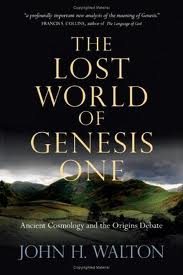Given my interest in the interchange between science and religion, Debra @ Breathelighter asked me to post a few books for those wanting to know more. Besides, her request made me feel good, plus I know she enjoys when I post about this topic.
In order to provide a range of sources, I organized the books into thematic groups. Some of the books I reviewed here, so I also linked them as Past post.
FYI: I found many of these books through local libraries and inter-library loan systems.
The organizations list provide bountiful resources, including essays.
Historical
Saving Darwin (Karl Giberson)
The Evolution-Creation Struggle (Michael Ruse) Past post
Theologically Centered
Can You Believe in God and Evolution (Ted Peters and Martinez Hewlett)
Responses to 101 Questions about God and Evolution (John Haught)
God after Darwin: A Theology of Evolution (John Haught)
Questions of Truth: Fifty-One Responses to Questions about God, Science, and Belief (John Polkinghorne)
Science Centered
Finding Darwin’s God (Ken Miller)
Biblical
The Lost World of Genesis One (John Walton) Past post
Personal
The Language of God (Francis Collins) Past post
General
Origins (Deborah Haarsma and Loren Haarsma) (Review TBA)
When Science Meets Religion: Enemies, Strangers, or Partners? (Ian Barbour) Past post
Essays
By any of the above authors; plus, Denis Alexander, Peter Enns, George Murphy, Ron Numbers
Organizations (listed alphabetically)
American Scientific Affiliation
BioLogos Foundation
Center for Process Studies
Center for Theological Inquiry
Center for Theology and Natural Sciences
John Templeton Foundation
The Clergy Project
The European Society for the Study of Science and Theology
The Faraday Institute for Science and Religion
The International Society for Science and Religion
Vatican Observatory

